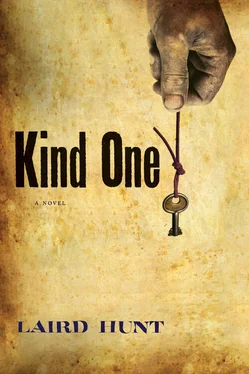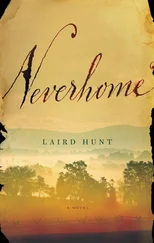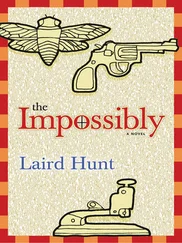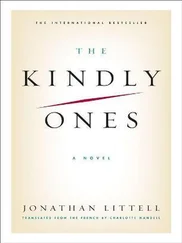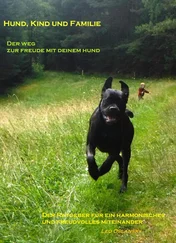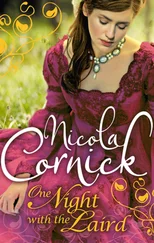THE STONECUTTER’S TALE (BY THE RIVER, BY THE WORLD). 1930
but for every trifle are they set upon me
I HAVE TWO VOICES.One I use when I am at home and one I use when I am anywhere else. I sat down in the booth and used the second one. The waitress brought me a cup of coffee. When she set it down in front of me, I used the voice again and asked for a slice of pie.
“You want whipped cream with that, hon?” she asked me.
I shook my head.
She brought me a glass of ice water with the pie. There was a fan turning noisily on the ceiling. She had sweated the armpits out of her uniform. She looked tired. Too worn out for the job. Her uniform too snug.
“Come far?” she asked me.
“Illinois,” I said.
“All that way?”
I nodded.
“First time?”
“No,” I said. “I’ve been down here before. Came on a visit with my aunt. It has been awhile though.”
I had spent the morning on the Ohio in a rented boat I had barely been able to steer. Twice I had run aground on sandbars. I am too old to pole heavy boats off sandbars, but I had done it each time. Aunt Z told me, before she died, that if I ever went looking, I should keep an eye out for a lone, brown bluff on the far side of the water. I had seen it long after I had lost hope.
“There’s a house down by the river. A big white house with a green roof. How do I get there?” I asked the waitress when she came over with the coffeepot.
“Why do you want to go there ?” the waitress said.
“It’s where I’m bound,” I said.
She looked at me, raised her eyebrow. I counted three fat droplets of sweat hanging from its curling tines. One of them dropped as I watched. She wiped the others away. I knew she couldn’t tell, hadn’t seen it yet, but it was in the room with us now, was ambling along the line of booths toward us, would come and sit down beside me, would curl my straight hair and darken my light skin. When I was young I had my smile and my fresh, unlined young face to send it away when I had to, but those days are long gone. Still, I had my traveling voice, my Main Street voice.
“This pie is delicious,” I said.
“I baked it myself,” she said.
“I might have guessed. I might just have guessed.”
I ate my pie, drank my coffee, got my directions. I was waving good-bye when I stepped out the front door and only narrowly avoided colliding with a man and a woman dressed in old horse blankets and wearing feathers in their hair. They nodded at me and I nodded back, then I watched them cross the street and disappear into a stand of trees beyond a filling station just like they had never been.
The house sat on a rise above the river. I left my tools in the car and walked down a narrow lane from the road. The front door opened before I had crossed the scraggly lawn. A woman in her later years stood before me. She had on a clean blue dress. She looked up at me through heavy spectacles.
“Can I do for you?” she said.
“I am a reporter for the Chicago Sun , and I am writing an article on places where slaves were given help. I understand this was one.”
I had spent time memorizing this speech during the drive down. I have never been a reporter for the Chicago Sun or for any other paper, but I did once, briefly, before I took up my trade, think of becoming one.
“I don’t know anything about that,” she said.
“I’m very sorry to hear it.”
“We don’t keep with coloreds here.”
“I understand.”
“Who told you about this place? They been talking in town?”
I shook my head. The house was in bad shape but didn’t look old enough to have been standing for better than seventy years. One or two of the outbuildings, possibly.
“Is there someone else I might speak to? Someone who might direct me?”
“I’m it,” she said. “Last one standing.”
“I know how that feels.”
“Do you?”
“Yes, I do.”
“Well, I’m sorry I couldn’t be any help to you.”
“And I’m sorry for having troubled your afternoon.”
“You have other places to visit for your newspaper article?”
“Just this one.”
I had turned and started across the lawn. I had begun to walk back to my car, to return from nothing to nothing, the air, the road, the long drive back, when she spoke.
“My parents were Christian people,” she said.
I stopped.
“They said the good Lord saw no color when he looked down at us.”
I had put my hat back on. I took it off again.
“No color at all.”
I nodded. She looked carefully at me.
“You don’t look anything like a reporter,” she said.
I nodded again.
She stood without moving for a long time, then she clicked her tongue and gave me a small, careful smile.
We crossed what had once possibly been a sorghum field, then followed a path down a gulley, through a notch between two hills and into a pretty stand of oak, willow, and birch. I took my hat off and held it against my chest when she pointed. Two or three dozen moss-dripping markers sat surrounded by the remnants of an iron fence. The markers were cross-shaped. Made of pink granite most of them.
“Some didn’t make it across the river. My parents buried every last one.”
I nodded. I’d heard about that.
“Who you looking for?” she said.
“Her name was Cleome.”
“No Cleomes here,” she said.
I was walking the markers, the woman stepping quietly behind me.
“I know every name. If they had one. Josiah, Eunice, Claremont, Osa, Letty, Brister, Dorcas, Jupiter, Pompey, Fanny, Turquoise, Lince.”
I turned. The woman had stopped. Was looking up at me.
“What’s your given name?”
I told her.
“We’ve met before.”
I shook my head, smiled. She did not.
“I used to ride the boat when they made the crossing. My daddy said we were doing Christian work. Told me to come along. You got your name on that boat. Your aunt called it out. We all heard it.”
“Yes ma’am,” I said.
“They burned my parents out during the war. Said they were helping other people’s property escape. They hung my daddy from a tree.”
“Yes ma’am.”
“My mother rebuilt. She lived to be a hundred.”
I nodded.
“That’s your mother there.”
I followed her arm to a marker at the back of the cemetery. She let me walk over alone. There was moss in the grooves but the inscription could still be read.
Mother of Prosper
1861
“My daddy went out and found her where she passed. Brought her here on the mule wagon. She got her Christian rights as best as they could be given.”
It took me a long time to be able to speak. I used my first voice when I did.
“Then I’m obliged to your father.”
“No,” she said. “No, you aren’t.”
“Then to you.”
“Not to me either.”
She started to walk back the way they had come, called over her shoulder as she was walking: “There’s room for her name on there. I know a stonecutter in town wouldn’t ask any questions.”
But I had already seen where I would make my first cut.
LUCIOUS (AGONISTES). 1912
Here; swear then how thou escapedst
THERE IS A STORYgoes with my name too. I was to have been called Joseph after the grand old man and be done with it. I was to have been Joseph Aloysius Wilson and that’s that. I was fresh born and on the earth and had my name. Then my father had his vision. Out in the field in the middle of the bright sunshine with his eyes still open but for the blinks. In it just born as I was, he carried me on his back all the way to North Carolina where I had started my dark swim. My mother stayed behind in Indiana, and my father carried me away from barley and corn and back into cotton and tobacco. He followed the route they had taken in riding away from it all, and he knew the road every inch and mile. I did not cry on his back, just rode along like a soft doll, and when he was again on the farm they had left behind there was no one but a colored woman waiting there. All the others had gone like my parents had, and it was just an old colored woman he had never laid eyes on before. She was dressed in drab except for a crimson scarf. In her hands she held a package tied with string. My father reached for the package, but she shook her head, so he reached behind him and hefted me around and she put it in my hands. When she had completed this chore, she touched my forehead and nodded at my father and was gone.
Читать дальше
